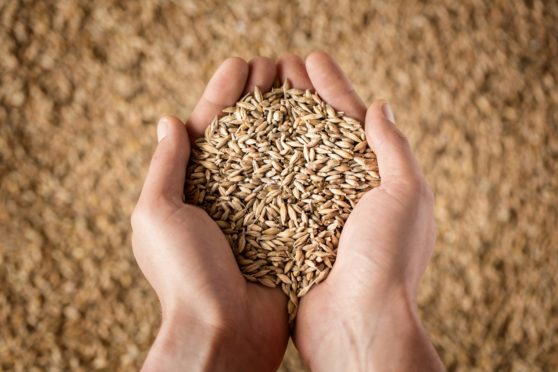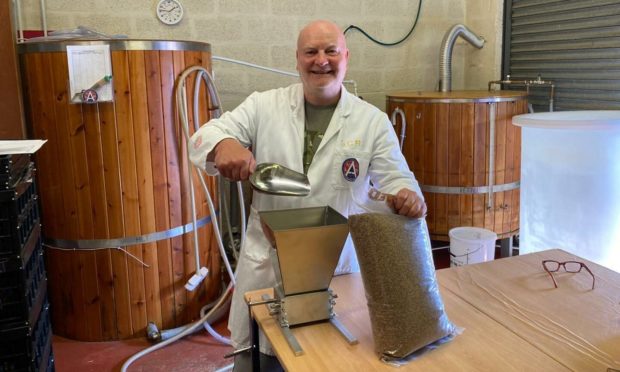Dundee-based Law Brewing Company is working on how to upcycle grain in a bid to reduce food waste.
Working with researchers from Dundee University, the microbrewery is exploring ways to create food products with used grains.
The upcycling process can help produce flour, bread, cereal, dog biscuits and more.
Used grain accounts for around 80% of waste material in the brewing process.
The process is more widely used in America.

Dundee University’s School of Business is looking for other companies to join the research.
Dr Danny Cullen, founder of Law Brewing, said there is a lot of potential to adopt the method in the UK.
“With grain accounting for such a high proportion of the waste generated by brewing, there is plenty of raw material to work with.
“The spent grain has most of the sugar removed and is still high in protein and fibre, minerals and vitamins, making it an ideal waste product for upcycling into flour or other food products.
“This idea is certainly more common in the USA but nothing significant has been produced on a commercial level in the UK so I thought collaborating with other local organisations and companies committed to sustainable consumption would be the best way to kick off the idea.”
Dr Cullen said the biggest stumbling block is drying the grain quickly to prevent it from spoiling.
“This means large drying ovens will be required if upcycling large quantities so hopefully working with the university will help identify partners for whom this will be commercially viable,” he added.
Do more with less
Doctors Daniel Clark and Keith Dinnie, from Dundee University, conduct research into the food and drink industry.
Dr Clarke said the upcycle collaboration with Law Brewing will help create a more sustainable industry.
“This opens up access to new markets and ways of supporting more sustainable business practices,” he said.
“The upcycling of spent grain from the brewing process to create new and innovative products presents an opportunity to do more while producing less waste, thereby delivering both environmental and socio-economic opportunities that otherwise might not be realised if grain continues to be sent to landfill.”










